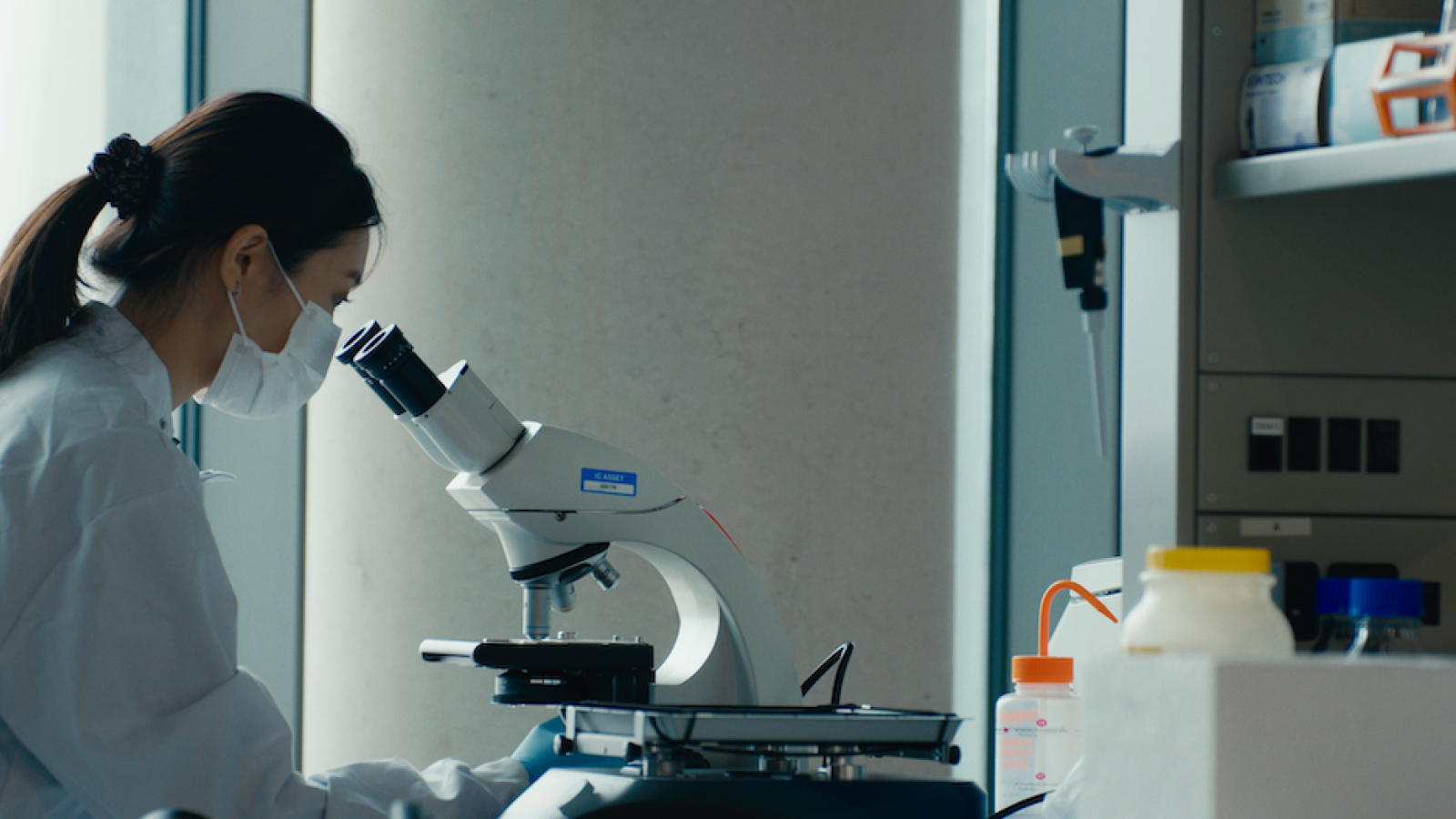Throughout World Alzheimer’s Month, we’ve been discussing how the UK DRI is #FillingTheGaps, at this critical juncture in the field of dementia research. In the past year, progress has been gathering pace and new Alzheimer’s drugs have emerged – showing that it is possible, at last, to alter the course of the disease. Experts say these treatments, though not the end of the story, lay the groundwork necessary for future drugs to build on.
We are at a crucial point in dementia research, with the promise of further scientific breakthroughs around the corner, which – with the right investment into research – could lead to rapid, transformational progress in the coming years. To capitalise on this, it is essential that we now double down on our efforts. As World Alzheimer’s Month 2023 draws to a close, the time is now to build on this momentum, and ensure we bring new treatments into reality for all affected by dementia.
In this remarkable era of scientific endeavour, the urgency to tackle dementia has never been more palpable. The time is now to channel our collective energy and determination into filling the knowledge gap in dementia.Dr Giovanna LalliUK DRI Director of Scientific Affairs
Taking stock of current progress
Our researchers are making new discoveries all the time that bring us closer to treatments for dementia. Just this month, a new paper by UK DRI scientist Prof Bart De Strooper (UK DRI at UCL) uncovered previously elusive clues as to why brain cells die in Alzheimer’s – opening up new pathways for future treatments.
Anti-amyloid drugs lecanemab and donanemab, both of which succeeded in phase 3 trials in the past year, have brought hope that the disease can be tackled effectively. Though these drugs are not perfect, they are a major breakthrough, and there are many lessons to be learned from them with regards to side effects, how they work, access, and how to measure meaningful impact of treatment.
However, many believe dementia will, in future, be managed much like other long-term health conditions such as diabetes or heart disease, with multiple medications being taken to tackle different aspects of the disease. In the case of Alzheimer’s, amyloid is only one part of the picture: there are many other factors in the brain and body that contribute to the disease. Other treatments targeting these factors, which include tau, inflammation and vascular health, are currently in development.
Exciting new avenues
At the UK DRI, our scientists are already exploring many exciting emerging areas of dementia research. This includes research into how damage to our DNA impacts neurodegeneration, the relationship between blood vessels and dementia, and the role of supportive cells in the brain in neurodegenerative diseases.
We’re also developing innovative technologies that could one day help overcome dementia. For example, our scientists are developing an ‘atlas’ of the Alzheimer’s brain, which will advance understanding of how the disease progresses and will help accelerate progress towards effective treatments.
Looking to the future
So, at this important moment, it is vital that we maintain momentum and keep #FillingTheGaps in dementia research.
Dr Giovanna Lalli, UK DRI Director of Scientific Affairs, said:
"In this remarkable era of scientific endeavour, the urgency to tackle dementia has never been more palpable. The time is now to channel our collective energy and determination into filling the knowledge gap in dementia. The future we aspire to create for those impacted by this devastating condition is within our grasp, and the UK DRI is in the perfect position to bring it into reality.”
Tackling the challenge of dementia is no trivial task, but there is hope. Scientists at the UK DRI are conducting vital, world-leading discovery research, approaching the problem from multiple angles and filling the knowledge gap, bringing us ever closer to new tools and treatments for people affected by dementia. However, we can’t do this alone. To help us achieve our mission, it is essential that research funding continues to be strategically directed towards filling the knowledge gap in dementia. The time is now, and we are ready to rise to the challenge.
Over the course of this month, we have shone a spotlight on some of the amazing work our researchers are doing, introduced some of our rising star early career researchers, and spoken in more depth about current progress in the field and where the next advance might come from. Check out our World Alzheimer’s Month campaign on social media using the hashtag #FillingTheGaps – and stay tuned for more exciting progress.
Article published: 29 September 2023
Banner image: Copyright UK DRI Ltd.
